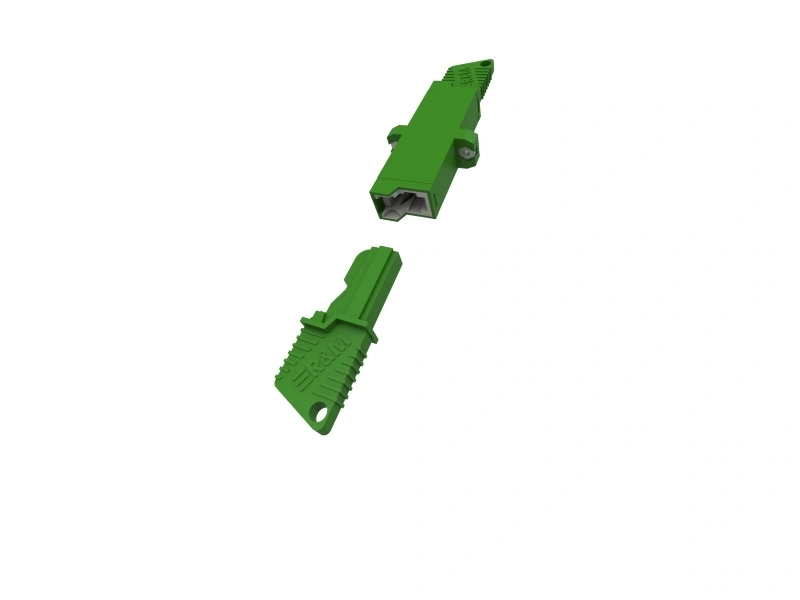An Insight into the Meaning and Significance

Fiber optic connectors play a crucial role in ensuring seamless data transmission over optical fibers. The term "APC" is often encountered in fiber optic connectors, but what does it actually mean? In this article, we will delve into the concept of APC in fiber optic connectors, exploring its meaning, significance, and impact on optical communication.
1. Definition of APC
APC stands for Angled Physical Contact. It refers to a specific type of fiber optic connector that features an angled end face. Unlike the traditional flat end face connectors, APC connectors have a polished end face angled at an 8-degree angle. This angled surface allows for minimal back reflection, reducing signal loss and improving overall performance.
2. Significance of APC Connectors
The use of APC connectors provides several significant advantages in fiber optic communication systems:
- Low Return Loss: The angled end face of APC connectors minimizes the amount of reflected light, resulting in low return loss. This is particularly important in high-speed and long-distance networks, as excessive return loss can cause signal degradation and impact data transmission quality.
- Improved Signal Quality: By reducing back reflection, APC connectors enhance signal quality and reliability. They enable cleaner and more accurate transmission of data, ensuring minimal disruption in communication networks.
- Wider Application Range: APC connectors are ideal for systems that require superior performance, such as dense wavelength division multiplexing (DWDM) networks, cable television (CATV) systems, and fiber-to-the-home (FTTH) deployments. Their ability to handle high-power optical signals and maintain signal integrity makes them highly suitable for various telecommunication applications.
3. Comparison with PC Connectors
While both APC and PC (Physical Contact) connectors serve their purpose in fiber optic communication, there are distinct differences between them:
- End Face Design: As mentioned earlier, APC connectors have an angled end face, while PC connectors have a flat end face. This angled design is the defining characteristic of APC connectors and contributes to their superior performance in terms of return loss reduction.
- Back Reflection: APC connectors provide a much lower level of back reflection compared to PC connectors. This makes APC connectors more suitable for applications where low return loss is critical, such as long-haul communication and high-speed data transmission.
- Connector Matings: It is important to note that APC connectors and PC connectors cannot be directly mated. Trying to connect two different connector types can lead to signal loss and connection issues. Hence, it is crucial to ensure compatibility when selecting and using fiber optic connectors.
Conclusion
In conclusion, understanding the meaning and significance of APC in fiber optic connectors is crucial for anyone working with optical communication systems. The angled end face design of APC connectors reduces back reflection and enhances signal quality, making them essential for high-performance applications. By employing APC connectors, network engineers and technicians can ensure efficient and reliable fiber optic communication.



